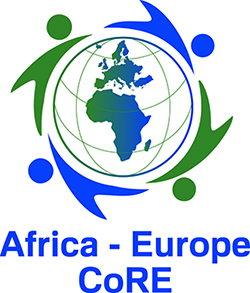Africa-Europe Clusters of Research Excellence
The University of Glasgow has joined with partners from across Africa and Europe to form vital new Clusters of Research Excellence (CoRE).
 The Africa-Europe Clusters were established by the African Research Universities Alliance (ARUA) and the Guild of European Research-Intensive Universities (The Guild) to bring together distinguished researchers across both continents to address head-on the inequity that has characterised research in relation to Africa, to the detriment of global science.
The Africa-Europe Clusters were established by the African Research Universities Alliance (ARUA) and the Guild of European Research-Intensive Universities (The Guild) to bring together distinguished researchers across both continents to address head-on the inequity that has characterised research in relation to Africa, to the detriment of global science.
The clusters will help ensure that a common research agenda is at the heart of the African Union’s Africa 2063 strategy, which envisages Africa’s transformation to a knowledge society; and also strengthen the capacity of research and innovation to make a major contribution to each priority of the European Union’s Global Gateway.
These sustained partnerships aim to transform the nature of collaborative research and bring about positive, long-lasting change to common societal challenges.
The University of Glasgow is co-lead two Clusters of Research Excellence and is a partner in three more clusters.
For more information
Public Health CoRE: Advanced infectious diseases research and training (Co-lead)
Aims
This cluster will tackle some of the biggest global challenges posed by infectious diseases, while also ensuring an equitable working partnership model between researchers in Africa and Europe.
It will seek to understand better the fundamental biology of infections that are endemic in Africa and cause millions of deaths each year, to inform drug discovery and development and control and eradication programmes.
| Co-Leads | University | Network/Alliance |
|---|---|---|
| Gordon Awandare | University of Ghana | ARUA |
| Andy Waters | University of Glasgow | The Guild |
| Lilach Sheiner | University of Glasgow | The Guild |
| Steffen Borrmann | University of Tübingen | The Guild |
Public health CoRE: Non-communicable diseases and multimorbidity (Co-lead)
Aims
This cluster aims to address the growing burden of non-communicable diseases (NCDs), such as high blood pressure and diabetes, and their co-morbidities in African nations, where they are increasingly becoming the leading cause of death. The cluster's goal is to improve the health and well-being of populations in Africa by using a multidisciplinary approach to develop innovative and place-specific solutions for the prevention and management of a range of NCDs and their co-morbidities.
| Co-Leads | University | Network/Alliance |
|---|---|---|
| Frederick Bukachi | University of Nairobi, Kenya | ARUA |
| Ibrahima Bara Diop | Cheikh Anta Diop University, Senegal | ARUA |
| Mayowa Ojo Owolabi | University of Ibadan, Nigeria | ARUA |
| Ntobeko Ntusi | University of Cape Town, South Africa | ARUA |
| Pasquale Maffia | University of Glasgow, UK | The Guild |
| Xavier Jouven | Université Paris Cité, France | The Guild |
| Tomasz J. Guzik | Jagiellonian University, Poland | The Guild |
Green transition CoRE: Nature-based solutions for climate change adaptation and mitigation (partner)
Aims
This cluster will respond to the fact that both Africa and Europe are highly vulnerable to climate variability and change, with human and wildlife consequences ranging from heat-related mortality and biodiversity loss to reduced food production and water scarcity. To tackle these urgent issues the research team plans to establish a climate service hub for Africa and a nature-based solutions innovation hub, as well as focusing on implementing innovative measures to combat climate change.
Glasgow’s Professor Fabrice Renaud, Head of the School of Interdisciplinary Studies, will partner on this cluster which is led by the Universities of Cape Town and Stellenbosch in South Africa, and the University of Bologna, Italy.
Guild page: Nature-based solutions for climate change adaptation and mitigation
Public health CoRE: Food environment actions for the promotion of health (partner)
Aims
This cluster will tackle the triple burden of malnutrition: urbanisation, food systems transformation and socio-economic inequalities. The research team will also work collaboratively on education and policy-related activities, to better understand different food environment drivers and their implications for planetary and human health.
Glasgow’s Dr Graeme Young, Lecturer in Social and Public Policy (Urban Studies) at the School of Social & Political Sciences, will partner on this cluster which is led by the University of Cape Town, South Africa, and Uppsala University, Sweden.
Guild page: Food environment actions for the promotion of health

